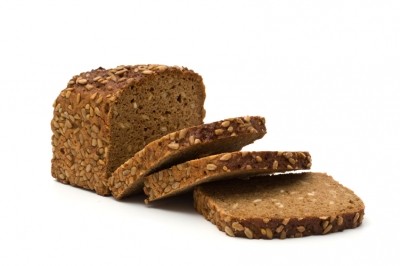New compounds shed ‘fresh light’ on whole grain health benefits

The study, led by the University of Eastern Finland, found a high intake of whole grains increased the levels of betaine compounds in the body. This, in turn, was associated with improved glucose metabolism and other positive impacts, the researchers concluded.
“Whole grains are one of the healthiest foods there is. For instance, we know that a high intake of whole grains protects against type 2 diabetes and cardiovascular diseases. Up until now, however, we haven’t understood the cellular mechanisms through which a whole grain-rich diet impacts our body,” said Dr Kati Hanhineva, principal investigator of the study at the University of Eastern Finland.
‘Significantly enhances’ understanding
Using metabolomics analysis, Dr Hanhineva’s research group investigated the effects of a whole grain-rich diet on the body’s metabolites. The effects were studied in mice fed with bran-rich fodder, and in humans following a diet rich in whole grain products over the course of 12 weeks.
A whole grain-rich diet increased the levels of betaine compounds in both mice and humans.
“This is the first time many of these betaine compounds were observed in the human body in the first place,” Dr Hanhineva noted.
At the end of the 12-week follow-up, the researchers also observed a correlation between improved glucose metabolism and increased presence of betaine compounds in the body.
“Pipecolic acid betaine, for example, is particularly interesting. Increased levels of pipecolic acid betaine after the consumption of whole grains was, among other things, associated with lower post-meal glucose levels,” Dr Hanhineva explained.
The discovery of the new compounds associated with whole grains “significantly enhances” our understanding of why whole grain products are good for our health, the researchers suggested.
New compound ‘works similarly’ to heart drug
One of the betaine compounds discovered by the researchers, 5-aminovaleric acid betaine (5-AVAB) appeared to cumulate in metabolically active tissues, such as the heart. With this observation in mind, the researchers set out to further test its effects in a cell model.
“We observed that 5-AVAB reduces cardiomyocytes’ use of fatty acids as a source of energy by inhibiting the function of a certain cell membrane protein,” researcher Olli Kärkkäinen from the University of Eastern Finland revealed.
“This cell level effect is similar to that of certain drugs used for cardiovascular diseases. However, it is important to keep in mind that we haven’t proceeded beyond cell level experiments yet. We need further research in animals and humans to verify that 5-AVAB really can impact the function of our body.
“In the future, we seek to analyse in greater detail the multitude of effects these new compounds can have on the human body, and we will also look into how intestinal microbes possibly contribute to the formation of these compounds,” Dr Hanhineva continues.
Source:
The American Journal of Clinical Nutrition
Published online ahead of print: DOI:10.1093/ajcn/nqy169
‘Diets rich in whole grains increase levels of betainized compounds associated with glucose metabolism’
Authors: Olli Kärkkäinen Maria A Lankinen Marilena Vitale Jenna JokkalaJukka Leppänen Ville Koistinen Marko Lehtonen Rosalba GiaccoNatalia Rosa-Sibakov Valérie Micard et al
Source:
Scientific Reports
Published online ahead of print: DOI: 10.1038/s41598-018-31484-5
‘Whole grain intake associated molecule 5-aminovaleric acid betaine decreases β-oxidation of fatty acids in mouse cardiomyocytes’
Authors: Kärkkäinen et al
























